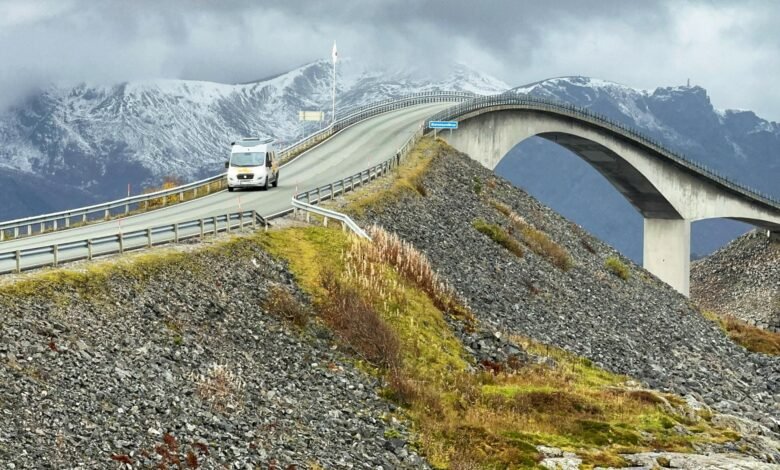The Lifestyle of People in Norway: A Harmonious Blend of Nature

Norway often offers a unique lifestyle for one of the happiest and wealthiest countries in the world. It shapes strong social values and progressive government through breathtaking natural landscapes. From majestic fjords and auroras to cultures rooted in simplicity and egalitarianism, Lifestyle of People in Norway are inspiring and jealous. This article examines various aspects that define the lifestyle of Norwegian people, including nature, work, life expectancy, social structure, dietary habits and community values.
1. Deep connection with nature
One of the most important aspects of Norwegian lifestyle is the deep respect and connection that people naturally have. The Norwegians are encouraged by breathtaking scenery, lakes, forests and oceans, and this environment plays a central role in everyday life. Outdoor activities are not only a hobby, but also part of the culture. Whether hiking in the summer, skiing in the winter, or enjoying calm moments at the lake, Norwegians spend the whole year in nature.
The concept of Frilf Slib, which roughly leads to the opening of life, is a deeply rooted part of Norwegian culture. It reflects the philosophy of spending time outdoors and evaluating the natural world regardless of the weather. Families often travel on weekends in mountain sheds and in the ocean, including simplicity and loneliness. This connection with nature promotes a sense of peace and mindfulness and contributes to a high level of life satisfaction from Norwegians.
2. Work-life balance and social well-being
Norway is known for its excellent work-life balance, a key aspect of its modern lifestyle. The standard workweek typically lasts 37.5 hours, and employers encourage staff to maintain clear boundaries between their professional and personal lives. Overworking is neither praised nor promoted, and long vacations are common. Employees receive at least 25 days of paid leave each year, in addition to public holidays. Parental leave guidelines are the best in the world. Parents have the right to promote gender equality in their care and strengthen family ties. Norwegian welfare model allows citizens to access quality health, education and financial support while unemployed or sick. This security network reduces stress and allows people to focus on their wells and personal growth.
3. Social Equality and Community
Norwegian society focuses on equality and justice. Because there are relatively few visible differences, prosperity is distributed evenly than in many other countries. This is due to the high tax system that funds universal services and services. Norwegians often avoid prosperity and tend to appreciate humility and humility.
The spirit of community is also a central feature of Lifestyle of People in Norway. Many people participate in volunteer activities, sports clubs and local organisations. Neighbours pay attention to each other and have a high level of social trust. It is common for parents to allow young children to play unattended. This reflects both community security and trust.
4. Education and lifelong learning
Education is highly regarded in Norwegian society. Public education, including universities, is free and focuses on critical thinking, creativity and cooperation rather than learning. Teachers encourage students to explore their interests and continue their education. Adults also engage in lifelong learning, often participating in further training and skill development throughout their careers
The education system is not only aiding academic success, but also a personal well that contributes to preparing citizens for a balanced and meaningful life.
5. Food and daily habits
Traditional Norwegian food is simple yet heartfelt, reflecting the country’s oceans and agriculture. Fish, especially salmon, cod and herring, play an important role in the kitchen. Bread, potatoes, root vegetables and dairy products are staple foods. In recent years, international influences have been expanding Norwegian palate, particularly in urban areas where a variety of kitchens are available.
Norwegian diets are generally consistent and structured. Breakfast is abundant early and well. Lunch is a bit like a sandwich with an open face. Dinner is usually the main meal on days when you can eat around 5 or 6pm. Norwegians appreciate homemade meals and often reserve special foods for family gatherings or celebrations..
Coffee culture is also important in Norway. Norwegians are the world’s highest coffee – head coffee. A coffee break, known as a coffee break, is a suspected part of business days and social life, and is often accompanied by pastries such as Bollar and Kringle.
6. Listen to simplicity and high-sing
Norwegians prefer a minimalist lifestyle. People often decorate their homes with clean lines, natural materials, and functional designs that reflect Scandinavian aesthetics Compared to the amount and sustainability of consumerism, there is a cultural preference for quality.
The idea of costumes, similar to Danish Heidi, emphasizes comfort, comfort and satisfaction. Whether you’re a candle on a dark winter night, family, or enjoying a quiet night at home, Norwegians are the simple joys of life.
Conclusion
A unique combination of natural beauty, strong social values, and modern, thoughtful policies shapes the lifestyle of people in Norway. It is a life that harmonies work and leisure and promotes a strong sense of community and well. While the world is looking for a sustainable and wise lifestyle, Norwegian models offer valuable lessons such as living with nature and living with others.



